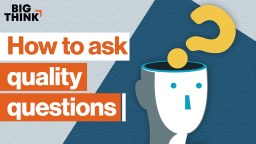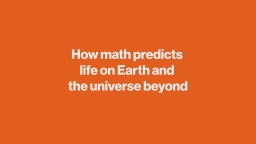mind
There is a lot we don’t know about psychedelics, but what we do know makes them extremely important.
▸
20 min
—
with
Philosophers have been asking the question for hundreds of years. Now neuroscientists are joining the quest to find out.
▸
6 min
—
with
These tiny fish are helping scientists understand how the human brain processes sound.
It’s never too late to learn a new language. Just don’t count on speaking French like a Parisian.
A new study found similarities between the human brain and the cosmic network of galaxies.
“Such studies will lead to a better understanding of brain development in both autistic and typical individuals.”
The negative associations of introversion help to explain why loneliness now carries such social stigma.
Humans are particularly prone to shiver when a group does or thinks the same thing at the same time.
Logic puzzles can teach reasoning in a fun way that doesn’t feel like work.
A persistent barrage of information is not the best method for getting through to someone with a different point of view.
▸
5 min
—
with
While the benefits of music therapy are well known, more in-depth research explores how music benefits children with autism.
New research pinpoints the neurons responsible for your choices.
Here are 5 ways to make your workplace better and your workforce happier.
Creating a better understanding by clearing up common misconceptions about the neurodiversity movement.
This week, Big Think is partnering with Freethink to bring you amazing stories of the people and technologies that are shaping our future.
▸
5 min
—
with
Students who think the world is just cheat less, but they need to experience justice to feel that way.
The number of people with dementia is expected to triple by 2060.
Join Radiolab’s Latif Nasser at 1pm ET today as he chats with Malcolm Gladwell live on Big Think.
▸
with
A team of researchers have discovered the brain rhythmic activity that can split us from reality.
What exactly does “questions are the new answers” mean?
▸
10 min
—
with
Thought expriments are great tools, but do they always do what we want them to?
Insomnia is the product of mental or emotional pressure.
Does time exist? Here’s what the debate is all about.
▸
13 min
—
with
Can we affirm everything in life, the beauty and the suffering? Nietzsche says yes.
The problem is that what’s true of magnets is not at all true of romance.
It’s a very human behavior—arguably one of the fundamentals that makes us us.
Restflix has over 20 personalized channels for optimal sleep.
Spending time in green spaces seems to yield many health benefits, most of which researchers are only beginning to understand.
Math doesn’t suck. It is one of humanity’s greatest and most mysterious journeys.
▸
15 min
—
with
A new study shows that naming conventions will change how infants represent objects in their memories.





























